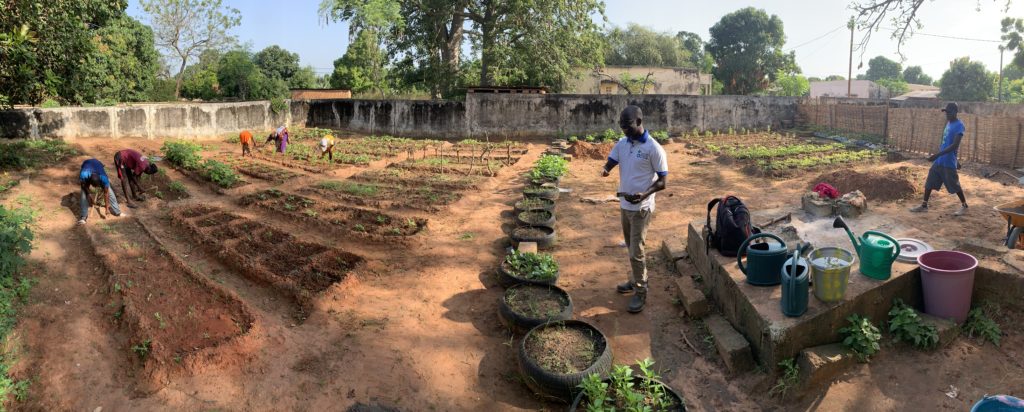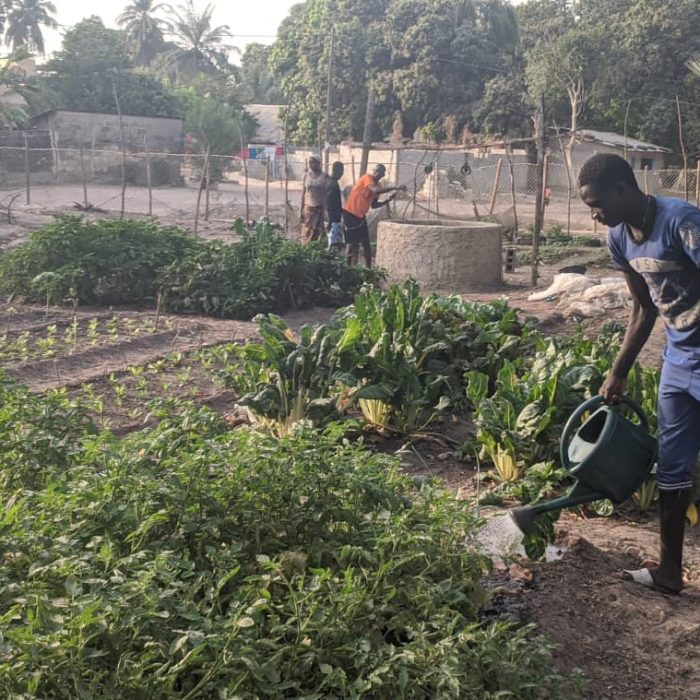


Being that Ziguinchor is an urban center, most of DIG’s farmers here have limited land. As a result, many have never considered gardening to supplement their diets let alone growing for economic gain.
By adapting DIG’s program to thrive in this urban and peri-urban context, farmers have been able to both grow for their families and while also injecting high quality, nutrient dense produce into the local markets.
By forming cooperatives, these farmers have the influence and the capacity to realize a more resilient food system for their community.
Dianke Diatta, a 42 years old urban farmer in Ziguinchor, had a small plot of land before she received DIG training in 2019. With DIG’s support, she enlarged her garden and worked diligently to improve the fertility of her soil.
Her efforts were well rewarded when her yields almost doubled. Before DIG, Dianke never sold her vegetables in the market, but this year, her excess harvests opened up a new opportunity to do just that.
With the additional money she’s earning from the market, she’s consistently paying the school fees of her six children, and she’s growing year round. With only one rainy season a year, most farmers in Senegal grow for only three months, but Dianke has used the skills she learned through DIG to grow continuously throughout the year.
During ramadan, her harvest sales allowed her to put chicken on the table and purchase new clothes for the kids. She’s expressed gratitude for DIG’s program and hopes other women will get the chance to participate.
In a gesture of that gratitude, Dinke gives vegetable to her neighbors and sells to relatives at a cheaper prices. Mostly she’s proud to be so useful to her family and an inspiration to her community.